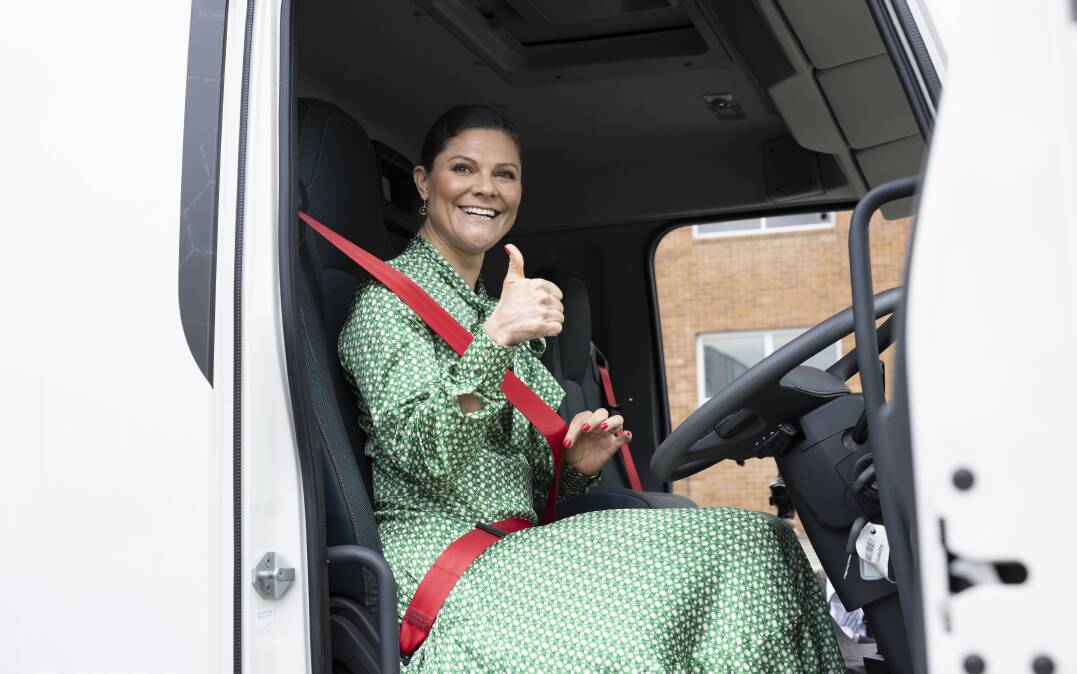
Sweden's Crown Princess Victoria revealed in Canberra on Tuesday that images of the devastating fires that raged in Australia over the summer of 2019-20 had a profound impact on her - and were "an eyeopener for many people that climate change is real".
Her Royal Highness referred to her visit this week to the Tidbinbilla Nature Reserve, where she heard how the Orroral Valley fire in January, 2020 burnt 22 per cent of the reserve and 80 per cent of the Namadgi National Park.
While the Orroral Valley fire, which destroyed more than 80,000 hectares of the Namadgi was inadvertently started by an army helicopter, it spread quickly, not least because of "exceptionally dry forest fuel loads", according to a report by the ACT environment, planning and sustainable development directorate.
"I remember well that the fires were a topic of discussion with our children around the dinner table in Stockholm and, I believe, in many other countries around the globe as well," Princess Victoria said.
"In fact, these bushfires were an eyeopener for many people that climate change is real. Hearing the stories from the local fire brigade yesterday in the national park was truly moving and at the same time shocking."
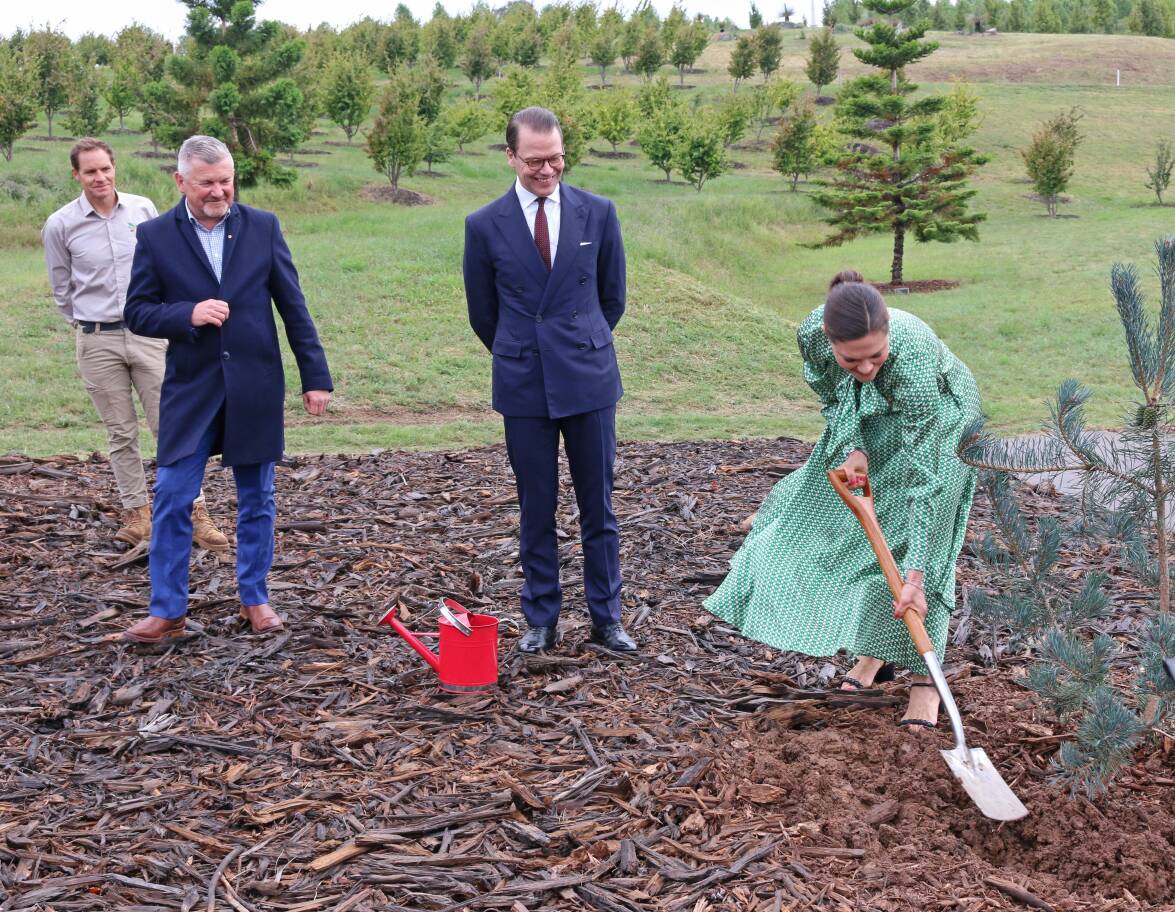
She said fires in Australia which threatened biodiversity and landscapes, floods in New Zealand and Pakistan, droughts in eastern Africa, glaciers melting and threatening sea level rises all pointed to the same conclusion.
"Climate change is real and it impacts us all, here and now," she said.
Attending a seminar at the Australian National University about electrification in Australia and Sweden, Princess Victoria said the challenge of climate change would only be mitigated through collaboration between business, government and researchers, helping to develop better energy solutions.
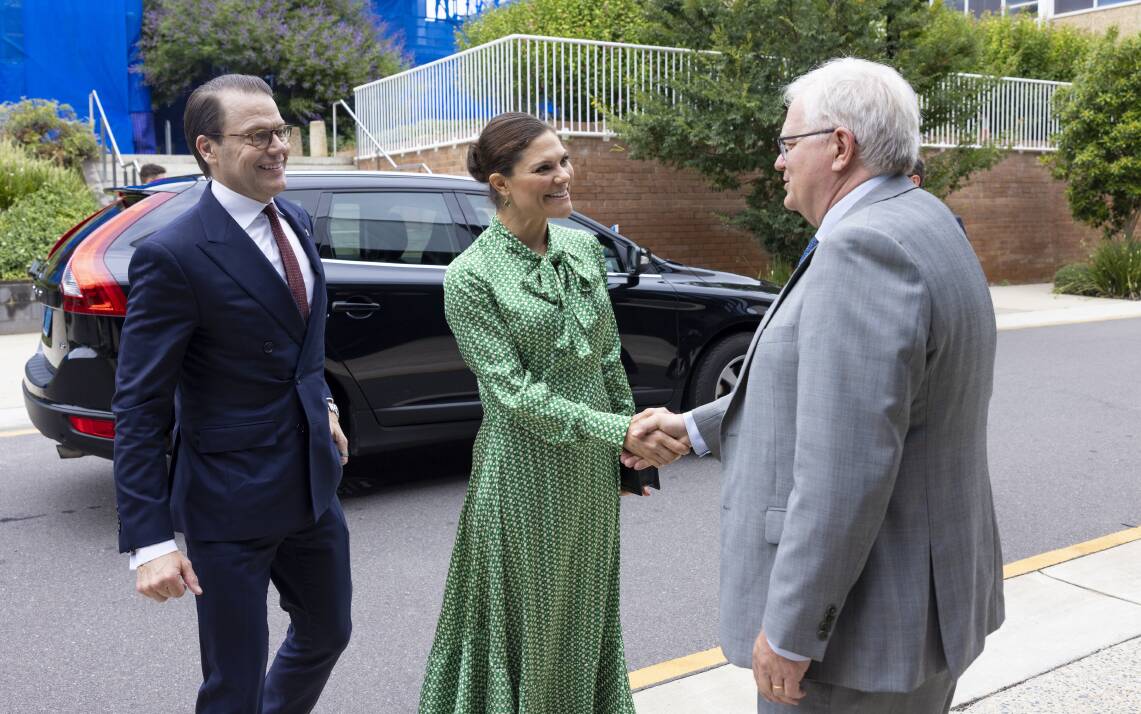
"I know Australia to be a country with great potential for green transformation, not least in the field of energy," she said.
The princess started the day planting a tree at the National Arboretum Canberra - a Pinus sylvestris 'Argentea' (Scotch pine) - continued hearing the planting of ideas at the ANU seminar.
ANU vice-chancellor Professor Brian Schmidt welcomed the Swedish entourage to the university, well-known to the Swedish royal family, as winner of the 2011 Nobel Prize in Physics, the awarded bestowed annually by the Royal Swedish Academy of Sciences.
He recalled meeting Princess Victoria for the first time when he won the award 12 years ago.
"I remember walking down the stairs together being deeply intimidated by the ceremony, proceedings and the strobing flashes that were trying to get a picture, not of me, but of Her Royal Highness," he said.
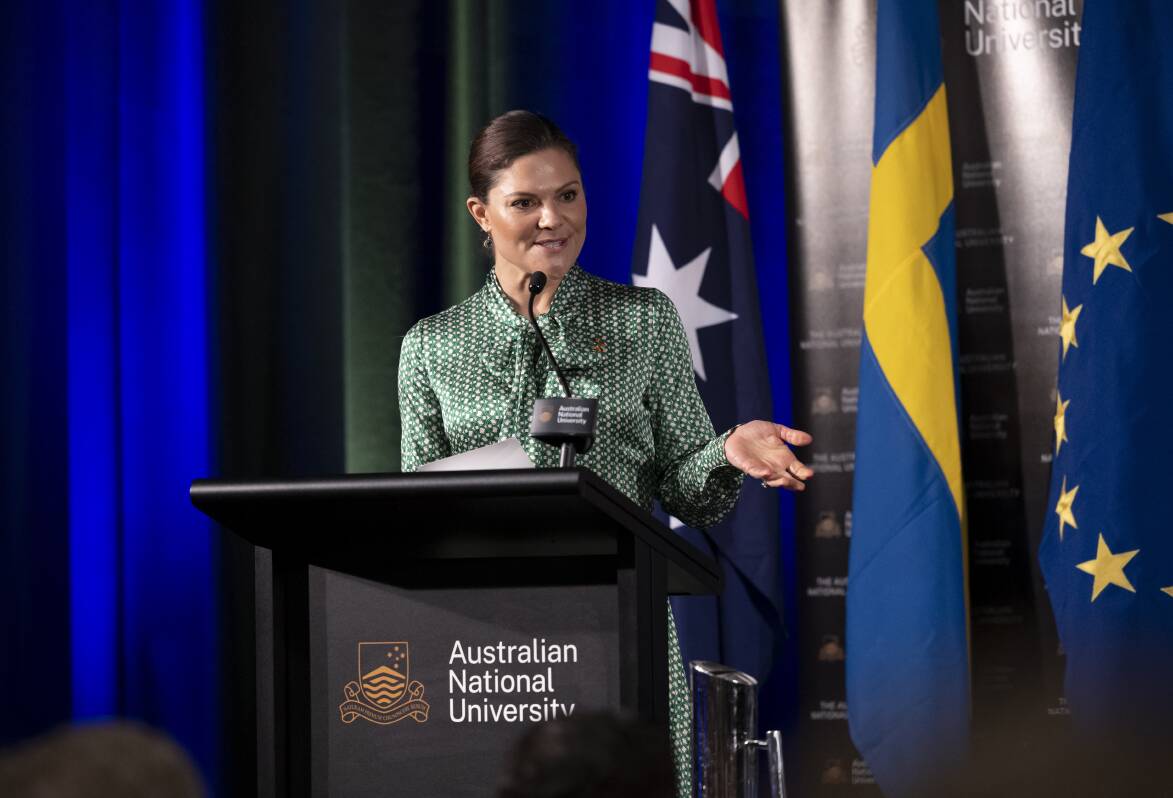
Addressing the issue of the day, Professor Schmidt told the seminar that climate change was "one of the most pressing challenges to humanity's existence".
In 2021, the ANU launched the Institute for Climate, Energy and Disaster Solutions which brought together more than 570 researchers from across the university to find solutions to the big problems facing the world.
The director of the institute, Professor Mark Howden, moderated Tuesday's seminar at the ANU, which focused on electrification and how new energy systems might temper climate change.
"The data is clear," Professor Schmidt said. "Although electrification has reduced national greenhouse gas emissions by about 7 per cent to date, this is well below its potential.
"We need to increase electrification exponentially to meet the Paris agreement targets and we need to do it quickly, ethically and economically."
"Here in Australia, we have tremendous opportunity to cut greenhouse gas emissions through electrification with renewable energy.
"While currently at an early stage, electrification is accelerating rapidly and it's expected by 2030, over 80 per cent of Australia's power will be renewable."

At the ANU, Princess Victoria gave a lengthy speech, saying she and her husband had received a warm welcome to Australia and caught a glimpse of "your country's breathtaking beauty" during their visit to the Namadgi National Park on Monday.
"We were absolutely blown away by the pristine bushland and sweeping grasslands and the mountains," she said.
"It was a thoroughly enjoyable experience, not least to us, coming from a wintry Sweden."
She said the visit to Namadgi had also been shocking as she learnt just how much of the park had been burnt during the 2020 fires, changing landscapes and threatening native and endangered species.
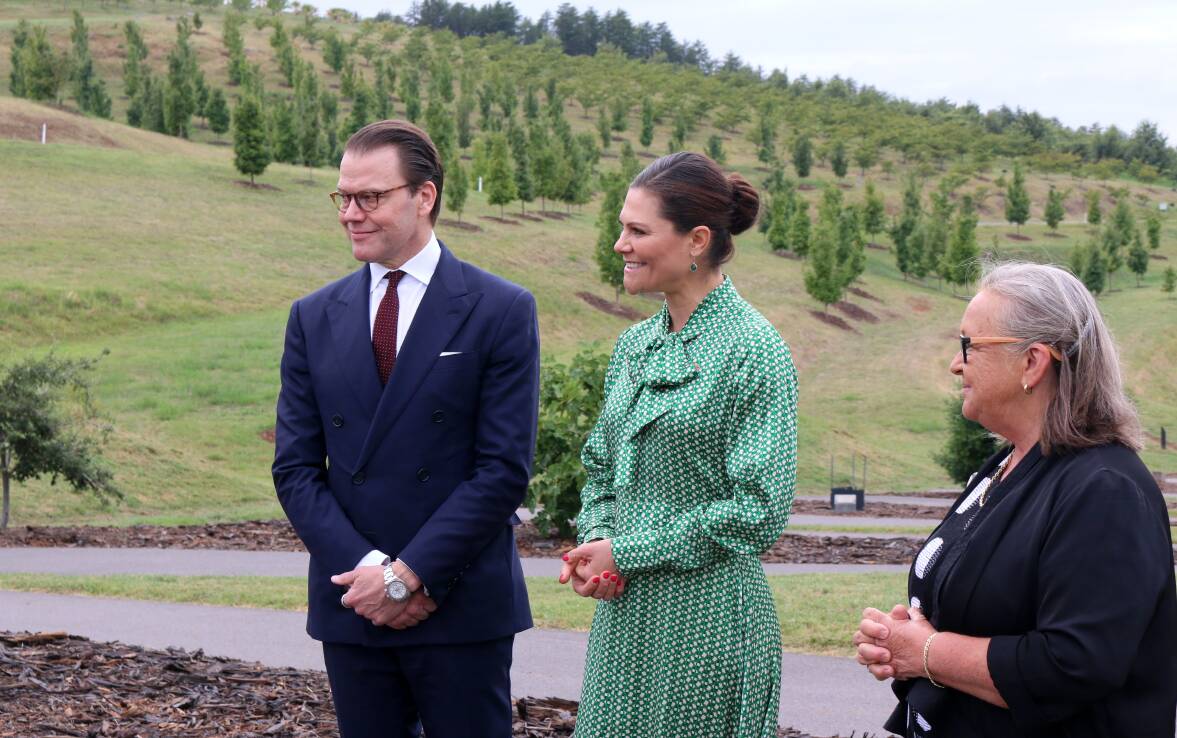
"Ladies and gentleman, loss of biodiversity is one of the greatest challenges facing humanity today," she said.
"Extinction of animals, plants and other organisms threaten life support systems on which we depend, like food, fresh air and clean water. Climate change affects the planet itself. As well as us, who live there, humans and animals alike."
Princess Victoria said she hoped that Tuesday's seminar could boost collaborations between Australia and Sweden as both countries grappled with climate change and energy systems fit for the future.
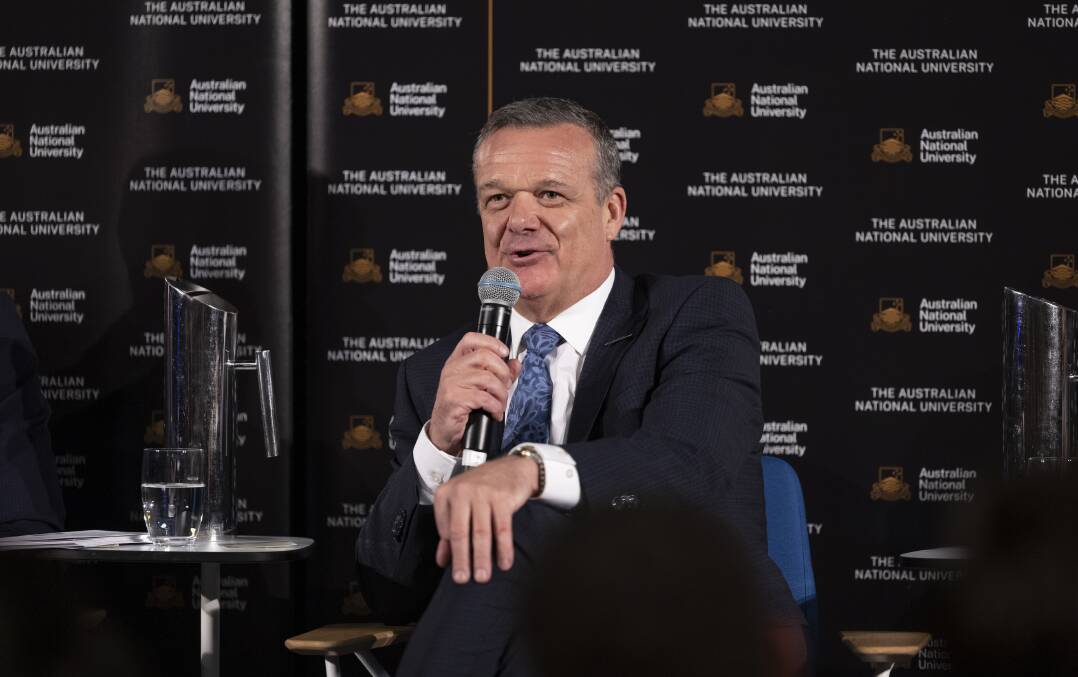
"Ensuring access to clean, constant and affordable energy is one of the most important tasks at hand," she said.
Also attending the seminar was Volvo Group Australia president and CEO Martin Merrick who said by 2030, fifty per cent of Volvo trucks sold globally would be electric and the company also intended to build battery-electric vehicles in Australia within the next three to four years.
"I'm very excited about the future, a transition to a greener future," he said.







